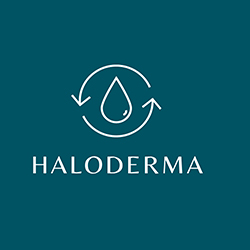AAU is a young and dynamic university located in northern Denmark with approximately 21,000 students and 3.600 salaried employees. Thanks to world-class research environments, AAU has gained top ranking in several international lists. According to Times Higher Education impact ranking 2024, AAU ranks in the world Top 5 on sustainability. According to the US News World Ranking, AAU ranks as no. 250 in the overall world university rankings and for the sixth time in a row, best in Europe, within the field of Engineering. As an endorser of the European Charter & Code for Researchers, AAU will provide excellent framework conditions for me to accomplish my project. AAU supports researchers with excellent conditions and has extensive experience in European funding, with 321 H2020 and HE projects, including 100 ongoing.
The HALO-TEX
Consortium
The HALO-TEX consortium unites 10 partners from 6 countries, including research centres, universities, textile organisations, and SMEs. Together, they are leading the way towards a circular, bio-based manufacturing model in which halophytes plays a key role to produce sustainable fibres for the textile industry. The consortium’s diverse expertise ensures outcomes that are scientifically rigorous, ethically sound, and socially impactful.









